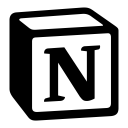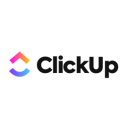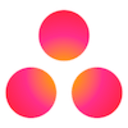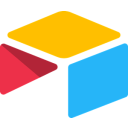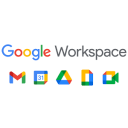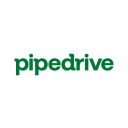ClickUp vs Notion: Finding the Right Tool for Your Business
- 01ClickUp vs Notion: overview
- 02What's the difference between ClickUp and Notion?
- 03ClickUp pros and cons
- 04Notion pros and cons
- 05ClickUp compared to Notion
- 06Notion compared to ClickUp
- 07Features comparison
- 08ClickUp vs Notion: Which is the best for your business?
- 09Promotions on Collaboration software
- 10Alternatives to ClickUp & Notion
Access up to $1,000 savings on ClickUp & $6,000 on Notion
Access up to $1,000 savings on ClickUp & $6,000 on Notion
Suppose you’re looking to improve productivity in your business. Various tools are available to help you with task and project management, collaboration, document storage, note-taking, time tracking—the list goes on. But it’s easy to become overwhelmed trying to manage multiple stand-alone productivity tools, and it can quickly become counterproductive.
The answer? An all-in-one tool that combines several of these functionalities. ClickUp and Notion are two such platforms ideally suited for project and task management. To decide which is best for your business, it helps to understand their features and differences. So, read on for our detailed comparison!
ClickUp vs Notion: overview
When it comes to productivity and organization tools, ClickUp and Notion emerge as prominent contenders. With a plethora of features and capabilities provided by both platforms, deciphering the optimal choice in the ClickUp vs Notion duel requires careful consideration.
To assist you in making an informed selection that aligns with your specific needs, we've crafted a comprehensive comparison table outlining the essential characteristics of each platform. Using a star-based rating system, coupled with insightful commentary, we aim to simplify your evaluation of the table below and guide you towards the most suitable productivity and organization solution for your endeavors.
What's the difference between ClickUp and Notion?
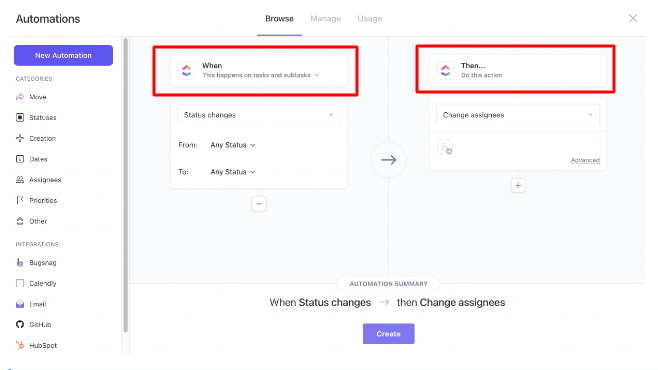
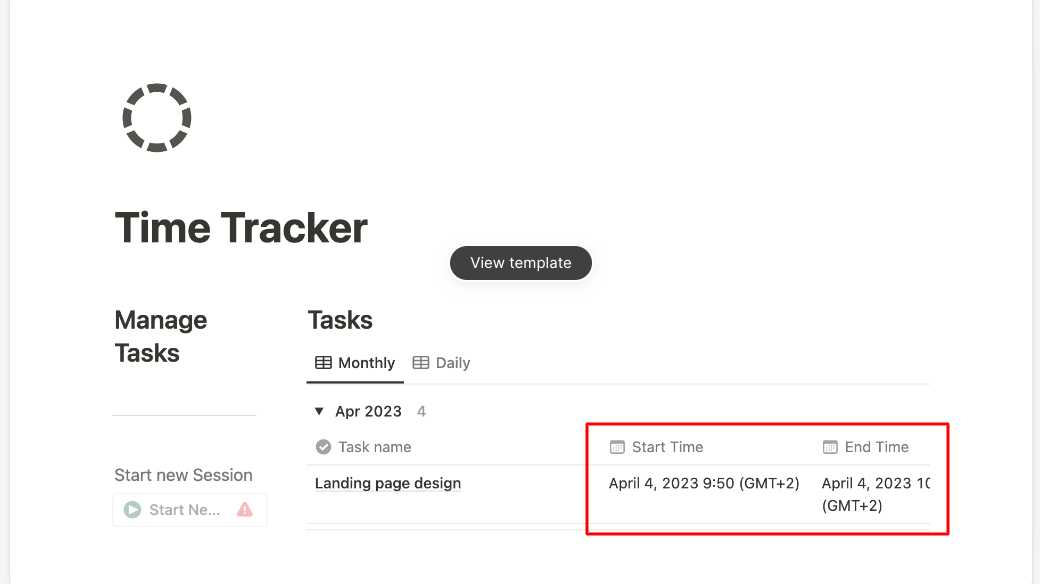
ClickUp and Notion are two popular productivity tools for businesses. Designed for various use cases across industries, the platforms share standard features like task tracking, document management and storage, and collaboration tools. But one of the significant differences between them is the range of features. While Notion started as a note-taking tool and now includes task and project management features, ClickUp is a full-suite project management and collaboration tool with many functionalities. It offers a high degree of flexibility but may take you longer to familiarize yourself with its features.
An example of these extended features is ClickUp’s advanced built-in automation tools. You can use the platform’s automation pre-built templates or create your own from scratch, setting conditions or events to trigger automated actions. ClickUp lets you set rules to automatically update a priority status or reassign tasks once they are complete. This feature is available with all of ClickUp’s plans, including its free version, to a limited extent. Unlike ClickUp, Notion doesn’t have built-in automation, and you need to use a third-party tool.
The apps’ approaches to time tracking also vary. ClickUp has a native time-tracking app that you can turn on and off. The native time-tracking app is included in all plans, but some features are only available with paid plans, like tracking billable time. Notion’s time tracker is template-based and requires a manual setup. The tools’ user interfaces also vary. With Notion, you use a block system to add content to a page, including text, images, tables, and videos. Notion’s simple drag-and-drop tool makes this a straightforward exercise. Compared to Notion, some users may find Click Up’s interface more crowded due to the number of additional features it offers. A final small but important difference for some users is that ClickUp integrates with Google Calendar, while Notion does not.
ClickUp pros and cons
What are the advantages of ClickUp?
- Versatile project management: ClickUp offers a wide range of project management tools, from task tracking to goal setting, enabling teams to manage projects of various sizes and complexities effectively.
- Customizable workspaces: Users can tailor ClickUp to their specific needs by customizing views, fields, and layouts, providing a personalized and efficient work environment.
- Collaboration and communication: ClickUp supports seamless collaboration through features like comments, real-time chat, and document sharing, fostering teamwork and knowledge sharing.
- Integration capabilities: The platform integrates with numerous third-party apps and tools, enhancing workflow efficiency by connecting ClickUp with existing software.
- Pricing tiers: ClickUp offers a variety of pricing plans, including a free option, making it accessible for individuals, small teams, and enterprises to choose a suitable plan based on their requirements.
What are the disadvantages of ClickUp?
- Learning curve: The extensive range of features and customization options may result in a steeper learning curve for new users, requiring time to fully grasp the platform's capabilities.
- Complexity for small projects: For very simple projects, ClickUp's extensive feature set might be overkill, potentially leading to a more complex workflow than necessary.
- User interface: Some users find the user interface to be cluttered or overwhelming, especially when dealing with a high volume of tasks and information.
- Mobile app limitations: While ClickUp has a mobile app, some users report that certain features and functionalities are not as seamlessly accessible on mobile devices compared to the desktop version.
- Limited reporting: While ClickUp offers reporting and analytics features, some users feel that the reporting capabilities could be more robust and customizable for in-depth analysis.
Compare ClickUp to other tools
Notion pros and cons
What are the advantages of Notion?
- Flexible workspace: Notion's block-based interface allows users to create and customize pages with various content types, making it versatile for notes, tasks, databases, wikis, and more.
- Collaboration: Real-time collaboration and commenting features facilitate seamless teamwork, enabling multiple users to work on projects simultaneously and provide feedback.
- Database and knowledge management: Notion's database functionalities allow users to organize and filter information efficiently, making it a powerful tool for knowledge management and data organization.
- Integration and embedding: Notion supports integrations with various apps and services, and it also allows users to embed content from external sources, enhancing workflow and information consolidation.
- Cross-platform accessibility: Notion is accessible on multiple platforms, including web browsers, desktop applications, and mobile devices, ensuring users can access and update their information from anywhere.
What are the disadvantages of Notion?
- Learning curve: The abundance of features and customization options may result in a learning curve for new users, requiring time to understand and utilize the platform effectively.
- Mobile app limitations: While Notion's mobile app is useful, some users find certain features less intuitive or responsive compared to the desktop version.
- Performance for large databases: Notion's performance might slow down when handling extensive databases or documents, affecting user experience for those dealing with significant data.
- Pricing structure: Notion's pricing, while offering a free tier, can become expensive as users add more team members or require advanced features, making it less cost-effective for larger teams.
- Export and data portability: Some users have expressed concerns about the ability to easily export their data from Notion or port it to other platforms, potentially leading to lock-in effects.
Compare Notion to other tools
ClickUp compared to Notion
When comparing ClickUp and Notion, it becomes evident that each platform brings unique advantages to the table. ClickUp stands out with its versatile project management capabilities, extensive customization options, and seamless collaboration features. This makes it an excellent choice for teams seeking a comprehensive solution to streamline their tasks, projects, and communication.
While ClickUp offers robust project management, Notion's focus on flexible content creation and knowledge organization might be more suitable for users who prioritize versatile note-taking and documentation.
Is ClickUp better than Notion?
Evaluating whether ClickUp surpasses Notion hinges on the precise functionality that aligns with your requirements. ClickUp stands out as a comprehensive project management powerhouse, encompassing task assignment, time tracking, seamless team collaboration, and beyond. It consolidates tasks, documents, discussions, goals, and timelines within a unified interface, fostering efficient teamwork.
In contrast, Notion boasts heightened flexibility, serving as an adaptable foundation for constructing wikis, storing notes, and designing intricate workflows. For instance, ClickUp's robust task dependencies and Gantt charts make it a compelling choice for project-driven teams, while Notion's customizable databases offer novel ways to structure information for diverse purposes.
What is ClickUp best used for?
ClickUp shines as an exceptional project management platform, particularly adept at handling intricate projects and diverse teams. It thrives in orchestrating complex tasks, time tracking, and fostering seamless team collaboration.
Imagine a scenario where a marketing team is working on a product launch campaign. ClickUp can streamline the entire process by allowing team members to create tasks for each campaign element, assign responsibilities, set deadlines, and monitor progress. For instance, a graphic designer could be tasked with creating visual assets, while the content writer develops compelling copy, all while the project manager oversees the project's timeline.
ClickUp empowers such dynamic coordination, ensuring efficient project execution and team synergy.
Can ClickUp replace Notion?
While ClickUp excels in task and project management, it might not necessarily serve as a complete replacement for Notion, especially if you are heavily reliant on Notion's flexible note-taking and information organization features.
ClickUp does offer docs and wikis, but Notion's powerful modular system likely offers superior customization. For instance, if your team extensively uses Notion's templates for various purposes like meeting notes, product roadmaps, and design briefs, transitioning entirely to ClickUp might involve a learning curve and adjustments to established workflows. However, ClickUp can complement Notion by focusing on project execution and seamless team collaboration.
Is ClickUp cheaper than Notion?
In a direct comparison, ClickUp’s pricing structures are generally more appealing. While Notion offers a generous free plan, its paid plans are priced on a per-user basis, which can quickly add up for larger teams. If you have a growing team with diverse roles and responsibilities, the cost of scaling up Notion licenses might become a notable factor.
Conversely, ClickUp has both a free tier and per-user pricing for its Unlimited and Business plans, both proving to be cheaper monthly compared to Notion, potentially offering better value for money in cost as your team expands its usage and collaboration within the platform.
Is there a better Collaboration software than ClickUp?
While ClickUp is exceptionally versatile and comprehensive in project management, it's important to consider other specialized tools in the market.
Alternatives to ClickUp’s platform include Jira, Trello, Asana, Notion and Smartsheet, each tool with their own strengths when it comes to effective project management. Evaluating your business's distinct needs will enable you to identify the project management solution that best aligns with your objectives and workflows.
20% off Unlimited and Business plans for 1 year on ClickUp
Get 20% off Unlimited and Business plans for 1 year on ClickUp and up to $1,000 savings with Secret.
Notion compared to ClickUp
When delving into a comparison between Notion and ClickUp, it becomes evident that each platform has its distinctive advantages. Notion shines with its flexible and intuitive workspace, allowing users to create various content types seamlessly. This versatility makes it an ideal choice for individuals and teams seeking a comprehensive platform for note-taking, documentation, and knowledge sharing.
While Notion prioritizes content creation and knowledge management, ClickUp's strength lies in project and task management, catering to users who require a centralized platform to track and manage their work more efficiently.
Is Notion better than ClickUp?
Deciding between the two platforms hinges on your distinct needs. If your focus is on versatile information organization and collaboration—such as note-taking, knowledge bases, and document collaboration—Notion shines as an adaptable workspace. Its modular structure enables custom workflow creation.
On the other hand, if your priority is robust project management encompassing task assignment, time tracking, and team coordination, ClickUp proves superior. For instance, ClickUp streamlines tasks, documents, conversations, and timelines in a unified hub. Carefully assessing which functionalities align with your business goals ensures you select the software that best amplifies your productivity and project success.
What is Notion best used for?
Notion shines as a versatile workspace catering to various needs. It's a powerful platform that facilitates note-taking, project planning, task management, and more. For instance, you can create a comprehensive knowledge base by collating research materials, articles, and insights in one place.
Notion's adaptable database feature allows you to design customized solutions—like tracking expenses or managing contacts—tailored to your business requirements. Additionally, its collaborative capabilities foster team communication and coordination.
Whether you're an individual professional or part of a team, Notion empowers you to streamline your work processes and centralize information, ultimately boosting your efficiency and organization.
Can Notion replace ClickUp?
Notion offers a versatile platform that encompasses various functionalities, including task management. It allows you to create task lists, set due dates, and collaborate with team members.
However, for more intricate project management needs, ClickUp provides a broader array of specialized features. ClickUp's Gantt charts, time tracking, and customizable workflow automation offer enhanced project planning and execution.
If your focus is primarily on task management and lightweight project organization, Notion can serve adequately. Although, if you require advanced project management capabilities and in-depth team collaboration, ClickUp remains the superior option to ensure seamless project success.
Is Notion cheaper than ClickUp?
When comparing pricing structures, ClickUp generally holds the edge over Notion. While Notion’s pricing structure consists of a complimentary free plan and paid options based on a per-user model, which can become pricey as your team grows. Notion's costs can escalate significantly, particularly for larger teams requiring broader access and functionalities.
On the contrary, ClickUp provides a free tier along with per-user pricing for its Unlimited and Business plans, with ClickUp's pricing remaining competitive and cost-effective. This affordability ensures that scaling up with ClickUp doesn't compromise your budget, making it a more cost-efficient choice compared to Notion.
Is there a better Collaboration software than Notion?
While Notion stands out for its versatile workspace and organizational capabilities, it's crucial to explore alternative tools in the market that cater to specific requirements.
Notion's alternatives include platforms like ClickUp, nTask, Monday, Coda, Asana, and Trello, each excelling in different aspects of project management. These alternatives offer distinct features, such as advanced search capabilities, seamless cloud integration, collaborative task management, and specialized interfaces. By delving into the unique offerings of these tools, you can pinpoint the note-taking solution that perfectly complements your workflow and enhances your productivity.
6 months free on the Plus plan with Unlimited AI on Notion
Get 6 months free on the Plus plan with Unlimited AI on Notion and up to $6,000 savings with Secret.
Features comparison
Notion Offers Superior Note Taking and Document Organization Capabilities than ClickUp

In the realm of note-taking and document organization, Notion distinctly outperforms ClickUp. While ClickUp excels in project and task management, Notion takes the lead in offering superior capabilities for capturing and organizing notes and documents.
Notion's intuitive interface allows users to effortlessly create, structure, and categorize notes, ensuring that crucial documents are systematically arranged and readily accessible. This functionality proves invaluable for personal organization and optimizing efficiency.
Whether it's compiling research materials, drafting meeting agendas, or storing reference documents, Notion provides a versatile platform that enhances users' ability to manage and retrieve information effectively.
ClickUp and Notion are Equal at Project Management

Both ClickUp and Notion have strong project management features that allow the creation of projects, assignment of tasks, and tracking of progress. ClickUp's strength lies in its linear progress tracking, enabling teams to easily visualize the flow of tasks from start to finish.
On the other hand, Notion's emphasis on kanban boards and notifications provides a flexible and visual approach to project management, allowing teams to adapt their workflows based on their specific needs.
For instance, a software development team might prefer ClickUp's linear tracking for a structured software release, while a marketing team could utilize Notion's kanban boards for campaign planning and execution.
Notion has the Edge Over ClickUp for User-Friendliness

Notion takes the lead in terms of user-friendliness compared to ClickUp. While both tools offer a wide range of capabilities, Notion’s user interface is notably more intuitive and user-friendly.
Navigating Notion is straightforward and user-friendly, making project management tasks more streamlined. In contrast, ClickUp comes with a steeper learning curve due to its extensive feature set, which can be overwhelming for newcomers. Notion’s simplicity and ease of use contribute to its advantage, particularly for those seeking immediate usability without the need for extensive training. This makes Notion a more accessible and efficient choice for users looking for a user-friendly project management solution.
ClickUp Takes the Lead with its Wide Range of Integrations

ClickUp stands out as the frontrunner in integration capabilities when compared to Notion. With an impressive array of over 1000 external integrations, including popular collaboration software, communication tools, and development systems tools like Slack, Google Drive, and Github, ClickUp offers a comprehensive solution for consolidating work processes. These integrations play a vital role in enhancing efficiency by creating smooth connections between various applications.
Notion, while offering integration options such as Google Calendar and Evernote, presents a more limited range compared to ClickUp. This narrower spectrum of integrations might be less accommodating for businesses that require extensive connections to a variety of external tools.
While both ClickUp and Notion have their strengths, ClickUp's extensive integration possibilities contribute to its edge in streamlining workflows and boosting productivity. This advantage makes ClickUp a compelling choice for businesses seeking a versatile and well-connected project management solution.
ClickUp Excels in Real-Time Collaboration Compared to Notion
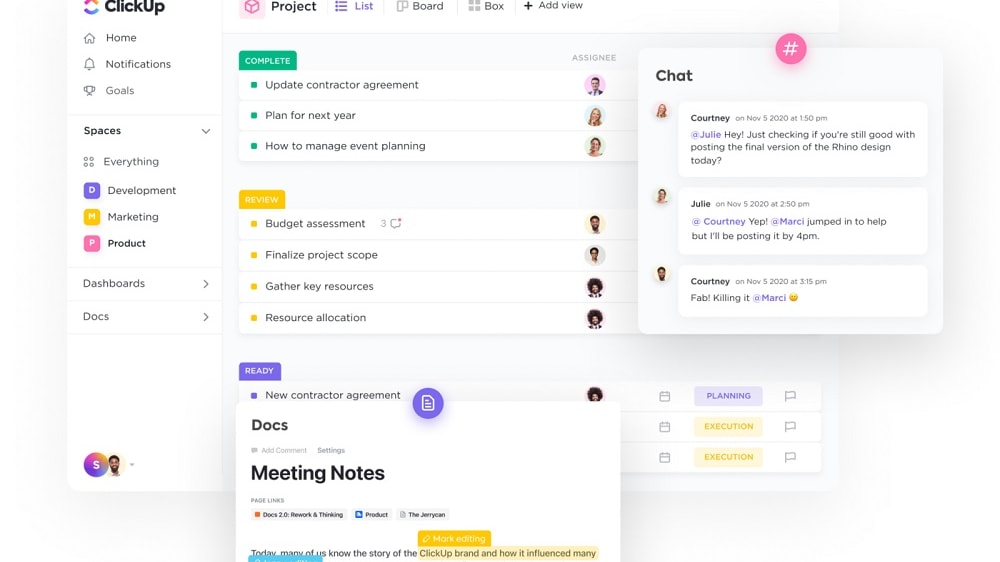
ClickUp demonstrates a noteworthy advantage in real-time collaboration when compared to Notion. Although both platforms enable collaboration to some extent, ClickUp's dedicated real-time collaboration feature elevates its capabilities.
In ClickUp, team members can actively collaborate on projects, simultaneously editing shared documents like notes, comments, and assignments. This dynamic feature fosters seamless teamwork, particularly for remote or geographically dispersed teams, by minimizing communication delays and amplifying overall productivity. This real-time interaction ensures that teams can swiftly contribute, make changes, and provide feedback, resulting in more agile and efficient project progress.
ClickUp Delivers Better Intuitive Task Management than Notion

ClickUp emerges as the superior choice for task management, offering an exceptionally intuitive and efficient system compared to Notion.
ClickUp's task management feature excels in its simplicity and user-friendliness, enabling effortless task creation, assignment, and tracking. The platform's intuitive interface empowers team members to swiftly adapt to the workflow, ensuring seamless collaboration and enhanced productivity. For instance, team leaders can easily assign tasks to specific individuals, set due dates, and monitor progress, while team members can access their tasks, prioritize activities, and provide updates, all within a cohesive and user-friendly environment.
This intuitive task management capability significantly streamlines team coordination and contributes to more effective project execution.
Notion's Database Gallery Provides a More Visual Representation of Data

Notion's Database Gallery stands out as a unique feature, offering a visually engaging approach to data representation that sets it apart from ClickUp's multitask view.
Notion's database gallery empowers users to create dynamic and interactive visual displays of data, making it particularly useful for projects that require a creative and graphical approach. Marketing teams could use Notion's database gallery to visually track and showcase the progress of various campaigns, using images, icons, and customizable layouts to provide a comprehensive overview. This feature not only enhances data visualization but also encourages more creative and collaborative project management.
Subscribe to our newsletters.
No FOMO here. Stay up-to-date on all the latest deals and news with our monthly newsletter straight to your inbox like 127,000+ entrepreneurs (+ Get 10% off on on our Premium Membership!)
ClickUp vs Notion: Which is the best for your business?
ClickUp is the best tool for you if:
- You want a full-suite productivity tool with versatile project and task management, collaboration, and time-tracking features to manage large-scale projects
- Advanced workflow automation is essential to your project management needs and a priority for your business
- You work on complex, interdisciplinary projects that require advanced collaboration features such as simultaneous editing
- One of your main criteria is a wide range of native integrations to consolidate work processes and improve productivity across your organization
- You’re managing projects involving a large number of tasks that require intuitive yet advanced task creation, assignment, and tracking
Notion is the best tool for you if:
- You’re an individual user or small team looking for a straightforward productivity app with an emphasis on content creation and knowledge management
- You need a tool to create custom databases, like knowledge bases or inventories, to centrally store internal information and documents
- Note-taking and document organization are a priority and you prefer working from customizable templates to set up notes, databases, and workflows
- You’re searching for a user-friendly, lightweight project management solution you can start using right away with minimal onboarding
- Your employees want to use a single app to collaborate on projects and organize their personal workloads and workflows
Alternatives to ClickUp & Notion
Promotions on Collaboration software
Start saving on the best SaaS with Secret.
Secret has already helped tens of thousands of startups save millions on the best SaaS like ClickUp, Notion & many more. Join Secret now to buy software the smart way.


